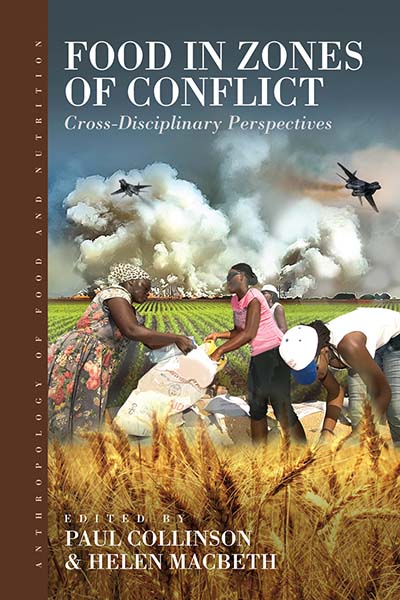By Amisah Zenabu Bakuri (PhD)
Research Associate, Vrije Universiteit, Amsterdam Author of Religious Sensibilities in Pursuit of Sexual Well-Being: African Diasporic Communities in the Netherlands Berghahn Books, 2024
It has been just over a year since the publication of Religious Sensibilities in Pursuit of Sexual Well-Being. At the time, I imagined I was closing a chapter, a culmination of years of ethnographic fieldwork, conceptual struggle, and writing that was a delicate balancing act, supported by many people. But in truth, the book’s release opened a new set of conversations, ones that have drawn me even more deeply into the historical, political, and ethical worlds that shaped its very premise.
Over the past year, I have presented the book in diverse contexts, including African Studies symposia, anthropology and religious studies classes/departments/conferences, as well as migrant justice collectives. Each space brought with it a different set of concerns, frameworks, and questions. And across these differences, I was reminded again and again that the book’s themes, sexual well-being, religious ethics, diaspora, and gender, do not sit quietly within disciplinary borders. They provoke, challenge, and resonate in ways that often exceed the text itself.
Looking back now, I see the book not only as an ethnography of Ghanaian- and Somali-Dutch communities in the Netherlands, but as a critical inquiry into the afterlives of slavery, colonial Christianity and racialised governance. It is a study of how these legacies continue to shape intimate life, influencing how people embody modesty, interpret sacred texts, negotiate kinship obligations, and imagine pleasure, all under the weight of racial and moral surveillance.
Religious Sensibilities: Between Embodiment and Inheritance
The book explored how people navigate intimate lives not despite religion, but often through it. What I foregrounded was not a story of sexual repression versus liberation, but the complex labour of ethical life, how individuals grapple with competing norms, desires, and obligations to cultivate a sense of what it means to live well. This meant attending to everyday gestures and moral decisions, sometimes quiet, sometimes ambivalent, that cannot easily be subsumed under narratives of resistance or compliance.
Over the past year, as I have returned to ethnographic research and comparative histories of colonialism, slavery, and Christianity in West Africa and the Caribbean, I have gained a deeper understanding of the historical depth of these sensibilities. The moral grammars I encountered in diasporic communities are beyond the outcome of contemporary migration or multicultural politics. They are part of a much longer genealogy of moral regulation, bodily discipline, and spiritual inheritance, shaped through missionary violence, colonial gender norms, and resistance.
Gender, Sexuality, and the Racialisation of Religion
From the beginning, I was struck by how Dutch public discourse racialises and pathologises the sexuality of Africans and their communities, especially when they are assumed to be religious. Liberal secularism is often mobilised as a moral high ground, where “gender equality” and “queer rights” become means to reinforce exclusion, police migrant bodies and reassert Eurocentric norms of intimacy and modernity.
And yet, within this fraught terrain, the people I worked with refused to be legible through dominant frameworks. They did not conform to scripts of victimhood or emancipation. They thought deeply about ethical life, whether navigating expectations around sexual purity, asserting care and authority in marriage, or experimenting with new forms of religious engagement. Many research participants demanded a new kind of analytical grammar, one that could hold ambivalence and relationality without flattening complexity.
In conversations across various spaces and settings, I was continually pushed to clarify: What does agency mean in a context of structural constraint? How do we theorise desire and well-being beyond Western liberal paradigms? These are academic, ethical and political questions.
Migration as Afterlife
Migration is too often reduced to routes, borders, and integration policies. But I have come to explore migration as something more temporal: an unfolding of afterlives. The migration of people is also the migration of histories, cosmologies, gendered scripts, and unresolved colonial memories and legacies.
To pursue “sexual well-being” as a migrant subject is beyond negotiating between cultures. It is to live within the resonance of multiple inheritances, to carry theological traditions, kinship disciplines, and embodied memories and legacies of empire, even as one navigates various social and moral terrains.
Living Theory: What the Book Has Taught Me
What the past year has taught me through dialogue, critique, and generous engagement is that Religious Sensibilities is not a book about answers. It is about ways of attending: to silence, hesitation, contradiction, and improvisation. It asks what happens when we take people’s moral reasoning seriously, not as proof of their assimilation or resistance. I have learned so much from the conversations and interactions that have emerged from the book’s publication, and I am deeply grateful for the insights and perspectives shared.
I am also reminded that scholarship is not about closure, but about ongoing ethical responsibility, to history, to complexity, and to the people who allow us to learn from their lives.
Religious Sensibilities in Pursuit of Sexual Well-Being was never meant to provide a final word. It was to open a space where intimate life could be thought with the seriousness, tenderness, and critical depth it deserves.












































































































































































































